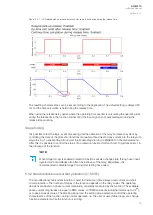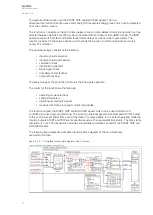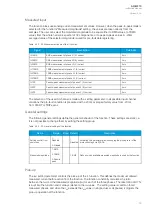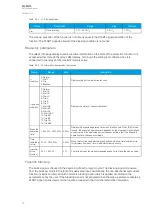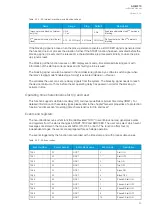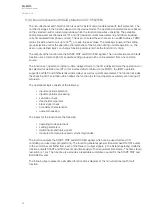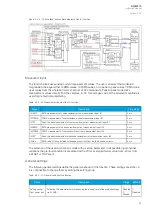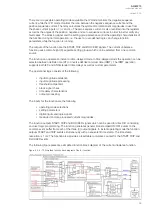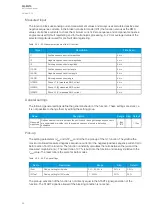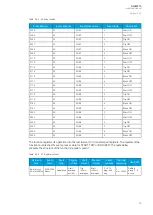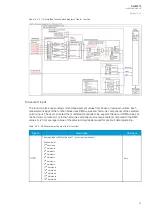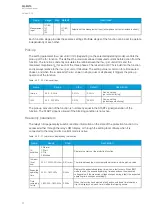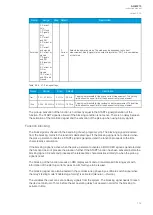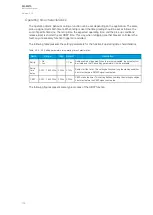
Read-only parameters
The relay's
Info page displays useful, real-time information on the state of the protection function. It is
accessed either through the relay's HMI display, or through the setting tool software when it is
connected to the relay and its Live Edit mode is active.
Table. 5.3.4 - 45. Information displayed by the function.
Name
Range
Step
Description
I2> condition
0: Normal
1: Start
2: Trip
3: Blocked
-
Displays the status of the protection function.
Function blocking
The block signal is checked in the beginning of each program cycle. The blocking signal is received
from the blocking matrix in the function's dedicated input. If the blocking signal is not activated when
the pick-up element activates, a START signal is generated and the function proceeds to the time
characteristics calculation.
If the blocking signal is active when the pick-up element activates, a BLOCKED signal is generated and
the function does not process the situation further. If the START function has been activated before the
blocking signal, it resets and processes the release time characteristics similarly to when the pick-up
signal is reset.
The blocking of the function causes an HMI display event and a time-stamped blocking event with
information of the startup current values and its fault type to be issued.
The blocking signal can also be tested in the commissioning phase by a software switch signal when
the relay's testing mode "Enable stage forcing" is activated (
General
→
Device).
The variables the user can set are binary signals from the system. The blocking signal needs to reach
the device minimum of 5 ms before the set operating delay has passed in order for the blocking to
activate in time.
Operating time characteristics for trip and reset
The operating timers’ behavior during a function can be set for TRIP signal and also for the release of
the function in case the pick-up element is reset before the trip time has been reached. There are three
basic operating modes available for the function:
• Instant operation: gives the TRIP signal with no additional time delay simultaneously with the
start signal.
• Definite time operation (DT): gives the TRIP signal after a user-defined time delay regardless
of the measured current as long as the current is above or below the
i
set
value and thus the
pick-up element is active (independent time characteristics).
• Inverse definite minimum time (IDMT): gives the TRIP signal after a time which is in relation
to the set pick-up value
I
set
and the measured current
I
m
(dependent time characteristics).
Both IEC and IEEE/ANSI standard characteristics as well as user settable parameters are available for
the IDMT operation.
Unique to the current unbalance protection is the availability of the “Curve2” delay which follows the
formula below:
A
AQ
Q-M210
-M210
Instruction manual
Version: 2.04
90

